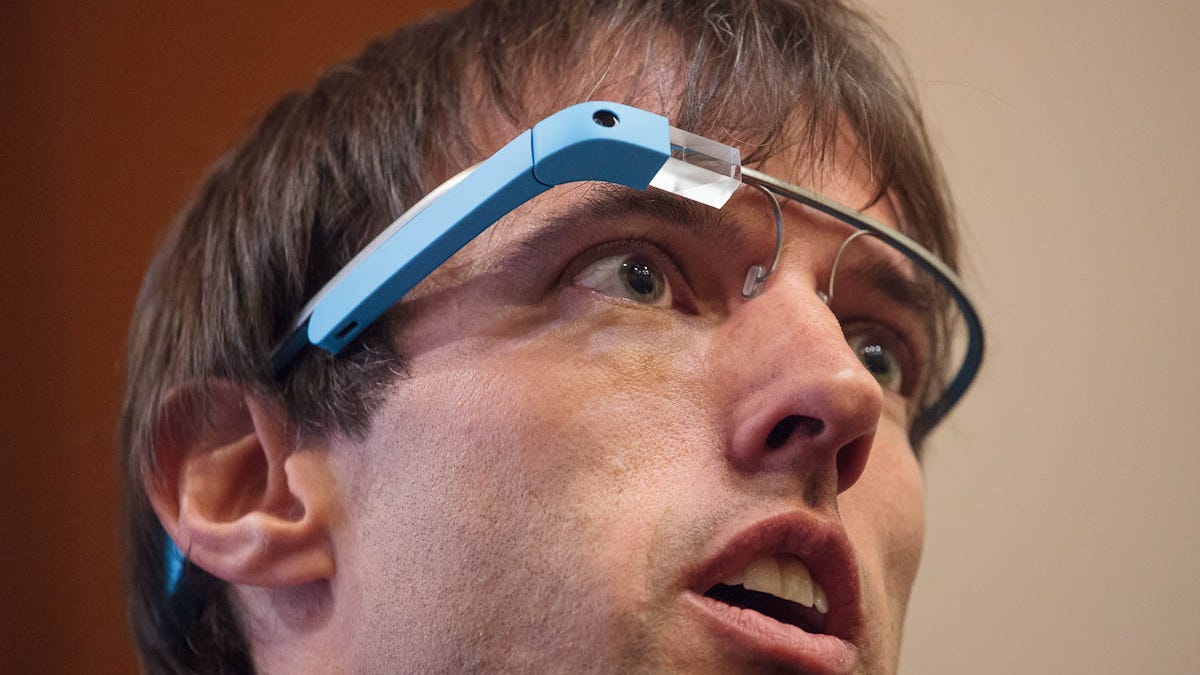Google Glass kernel software goes public
Continuing a string of revelations about its high-tech spectacles, Google makes the software kernel underlying the devices -- and the things they'll eventually let you do -- available for download.

OK, this is on the seriously geeky side, but if you're keeping tabs on all things Google Glass, you'll want to know that the software kernel underlying the high-tech spectacles is now publicly available.
The blog Karthik's Geek Center noted Saturday that the kernel source code for Google Glass has been posted to the Google Code site, ready for download. The brief writeup says that's "unlikely to be the permanent home" for the code, which should end up being relocated to a spot adjacent to "other android kernel source releases relatively soon."
The 65.7MB file -- described as a "tarball file," or a compendium of sorts -- for the code has been downloaded 3,506 times since it was uploaded to the site just over 24 hours ago. It's available under the GNU GPL v2 license.
In poking around through the code, the Karthik blog spotted signs of possible capabilities for mobile payments: "On digging into the Kernel, looks like it has got all the headers required for NFC support. May be Glass is NFC enabled? Or perhaps, since its running Android source, it has the NFC drivers by default?" But the post also notes: "Disclaimer: I might be completely wrong in analyzing this."
Google hasn't given any indication that its Glass technology, which will let wearers record video and browse the Internet from within the eyewear, will have anything to do with NFC. We've contacted Google to see if it has anything to say on that front.
Other snippets of code have suggested that users might be able to take a photo using Google Glass simply by winking and to zoom its view of the browser with two-finger movements.
For developers, Google has already released documentation for Mirror API, the programming interface that they will use to create Google Glass services, along with sample code.
There have been a lot of developments lately on the Google Glass front. Here's a quick recap:
• On April 15, Google revealed the technical specifications for Google Glass. Among other things, its camera will be capable of 5-megapixel images and 720p video; it will have 12GB of usable memory, synced with Google cloud storage, and 16GB flash total; for wireless connectivity, it can handle both Wi-Fi (802.11b/g) and Bluetooth; and audio will be handled through a bone conduction transducer.
• That same day, the first of the $1,500 Google Glass Explorer Edition prototype version of the eyewear began shipping to developers. Google Glass availability for consumers more broadly isn't likely for another year or so.
• Last week, Google CEO Larry Page confirmed the obvious, which is that Google Glass "runs on Android."
• On Thursday, Google Executive Chairman Eric Schmidt noted, despite the company's obvious enthusiasm for the gadget, that talking to the Glass is "the weirdest thing" and that people will have to learn a whole new etiquette to counter anxieties over what some people see as an overly intrusive technology.
• As of Friday, Google Glass had already been jailbroken, at the hands of hacker/developer Jay "Saurik" Freeman, the creator of the Cydia app store for jailbroken iOS devices. That evening, Stephen Lau, Google's technical lead on Glass, noted: "Not to bring anybody down... but seriously... we intentionally left the device unlocked so you guys could hack it and do crazy fun shit with it."
(Via Engadget)

